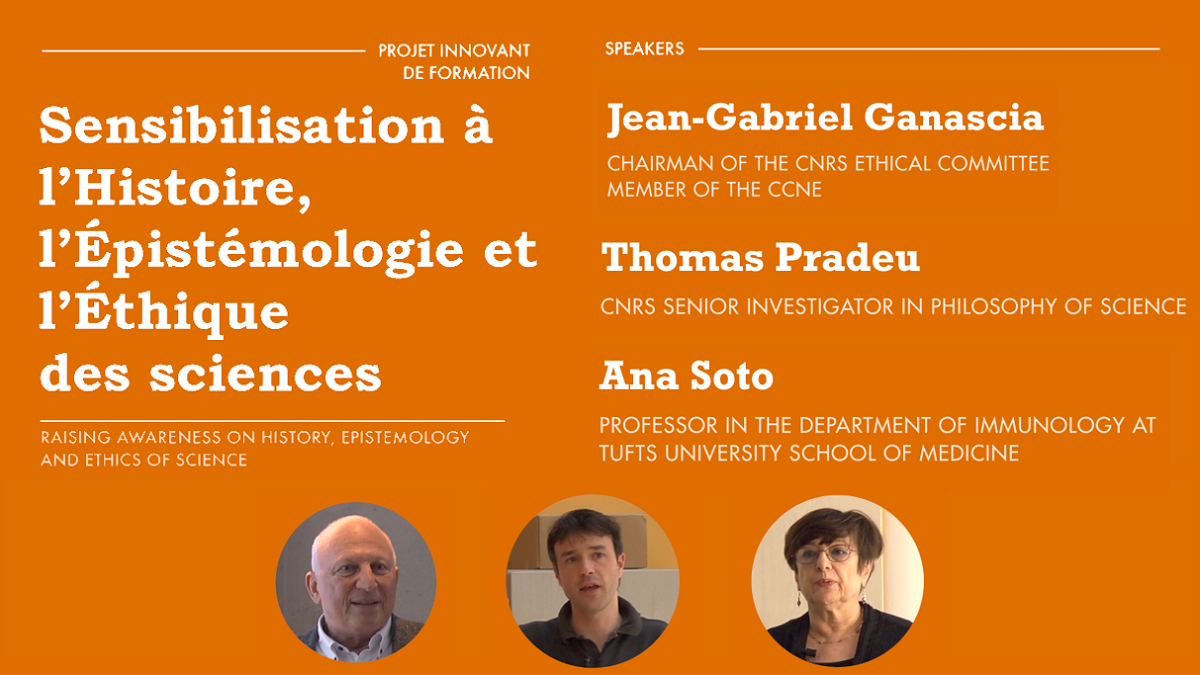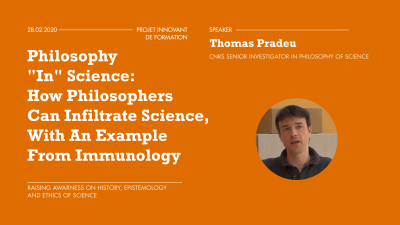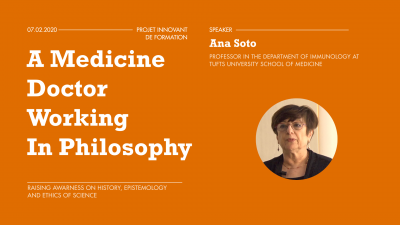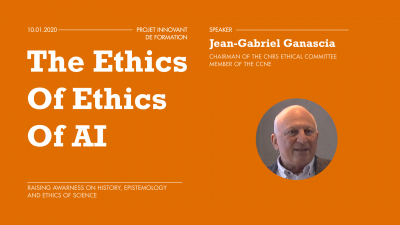Il s’agit de la quatrième édition de cette formation, portée par l’Institut Curie et l’École normale supérieure – PSL. Associant réflexion philosophique, études historiques et discussions sur les enjeux éthiques de la connaissance scientifique, cette formation est devenue indispensable à toutes celles et tous ceux qui travailleront demain en recherche ou, plus généralement, dans tous les métiers qui lui sont liés. Elle leur permettra non seulement d’améliorer leur démarche de chercheur mais aussi de développer une conscience citoyenne sur ces questions, et d’être mieux préparés au dialogue avec la Société.
Ce module s’est déroulé du 08 novembre 2019 au 24 avril 2020.
Philosophy « In » Science: How Philosophers Can Infiltrate Science, With An Example From Immunology
Epistémologie, Sensibilisation à l’Histoire, l’Épistémologie et l’Éthique des sciences – 2020
28.02.20201:05:08
How can philosophy help science? In the introduction to his lecture, Pradeu insists on the relevance of associating philosophy and science, especially philosophy and immunology. He then explains his personal approach to philosophy in science by showing a study on bibliometrics and reporting on an analysis of pins. Following a presentation of the ImmunoConcEpT laboratory and its team, Pradeu summarizes his thinking about immunology and individuality. According to Pradeu’s discontinuity theory, organisms are microbial communities, which means that individuals are not homogeneous, but heterogeneous. Pradeu concludes his lecture by presenting two therapeutic consequences of his theory: the shifting view on immune response in cancer and the development of an “ecosystemic” medicine.
A medicine doctor working in philosophy
Epistémologie, Sensibilisation à l’Histoire, l’Épistémologie et l’Éthique des sciences – 2020
07.02.20201:05:01
How does theory impact scientific research? In order to address this question, Ana Soto explains different ways in which her knowledge of philosophy nourishes her experimental work in biology. She especially insists on the need of theory to choose observables. After presenting the ORGANISM Group and its research, Soto discusses her theory of organisms and its three main principles: default state, variation and organization. To provide examples to her audience, she focusses on her experiments on organogenesis and on carcinogenesis. She ends her talk by sharing the conclusions of these experiments.
The Ethics of Ethics of AI
Ethique, Sensibilisation à l’Histoire, l’Épistémologie et l’Éthique des sciences – 2020
10.01.20201:25:20
Can ethical committees enact sets of norms to prevent the unethical use of AI technologies? Jean-Gabriel Ganascia starts his lecture on ethics and AI by recalling the origins of the scientific discipline as well as the different definitions of the term « artificial intelligence ». He then provides examples of the unethical use of AI in different situation, for instance with autonomous cars or intelligent agents. Through descriptions of ethical dilemmas that may occur when implementing AI technologies, Ganascia characterizes the specifics of ethics in the digital era. He concludes his lecture by mentioning a scientific paper he wrote with Thomas Powers about the ethics of ethics of AI. According to him, the risk of having unethical AI does not come from the technology itself that would take its autonomy, but from the men behind the technology.
 UNIVERSITÉ PSL
UNIVERSITÉ PSL







